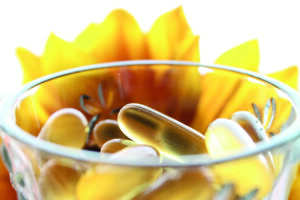
Low awareness of vitamin D puts the nation’s bone health at risk

Despite vitamin D being essential for healthy bones, only 37% of Brits realise that you can’t get vitamin D from sunlight between the end of September and beginning of April in the UK, according to recent research from the Royal Osteoporosis Society (ROS).
Public health advice is that people consider taking a daily supplement of 10 micrograms (sometimes called 400 units) of vitamin D during these months, yet the research shows that almost half of the nation (49%) are missing out on the vitamin D they need during autumn and winter by not supplementing their intake.
Half of women and 20% of men over 50 years old will break a bone because of osteoporosis, a condition where your bones become weak and break more easily, so it’s never too early to think about bone health and preventing the condition.
To raise awareness of vitamin D and bone health, the Royal Osteoporosis Society has launched a new vitamin D quiz that can be access via its website. The public are encouraged to take the quiz to test their knowledge of vitamin D, and what they can do to improve their intake.

Sarah Leyland is a clinical advisor at the Royal Osteoporosis Society
“Vitamin D is essential for the body to absorb calcium which is needed to maintain healthy bones. Diet only provides us with a small amount of vitamin D,” explains Sarah Leyland, clinical advisor from the Royal Osteoporosis Society. “From April through the summer, we can get good amounts of vitamin D from sunlight. During these months, it’s recommended that you expose your skin for short periods to direct sunlight for around 10 minutes, once or twice a day. It’s important not to get sunburnt though.
“From the end of September to the beginning of April though, we should all consider taking a daily 10 microgram vitamin D supplement because we can’t get it from sunlight.
“Getting adequate vitamin D helps us to absorb calcium and keeps our muscles and bones strong. Without adequate vitamin D, our bones become weakened.
“The real-life impact of this lack of awareness, and lack of action on bone health, results in an increased chance of broken bones, rickets and osteomalacia.”
As we work our way through the winter months, the Royal Osteoporosis Society is calling on the nation to take their new vitamin D quiz and think about our bone-health.
To take the vitamin D quiz and find out more about this vital vitamin, nutrition, and exercise for good bone health, visit www.theros.org.uk or tel 0808 800 0035.
Top vitamin D tips
- Consider taking a supplement in the winter months or all year round if you are not getting outside much or if you keep your skin covered.
- Don’t take big doses of vitamin D unless they are prescribed for you. The recommended daily amount is 10 micrograms (400IU). If you have osteoporosis, and especially if you are taking an osteoporosis medication, you may be prescribed 20 micrograms (800IU).
- Talk to friends and family about vitamin D and why it’s important for everyone’s bone health.
True story, Jan, 65 years old, Hampshire
“In 2012 I fractured both my arms when I fell backwards. After further investigation and a DEXA scan, I found out that I had osteopenia in both my hips – meaning my bone density was lower than the average adult, but not low enough to be diagnosed as osteoporosis.
“My GP recommended a good diet, rich in calcium, continued exercise, and a repeat DEXA scan in four years’ time. There was no mention of vitamin D intake or the consideration of a supplement.
“In 2014 I was found to have exceptionally low levels of vitamin D and started taking a calcium and vitamin D supplement. I do wonder why my vitamin D levels were not checked in 2012, or why a vitamin D supplement wasn’t considered. I feel like that was wasted time where I could have been doing more to protect my bones.”
PS Did you know that Arthritis Digest Magazine is labelled the best UK Arthritis blog from thousands of blogs on the web ranked by traffic, social media followers, domain authority & freshness?
Photo credit: Sarah Leyland, Royal Osteoporosis Society
